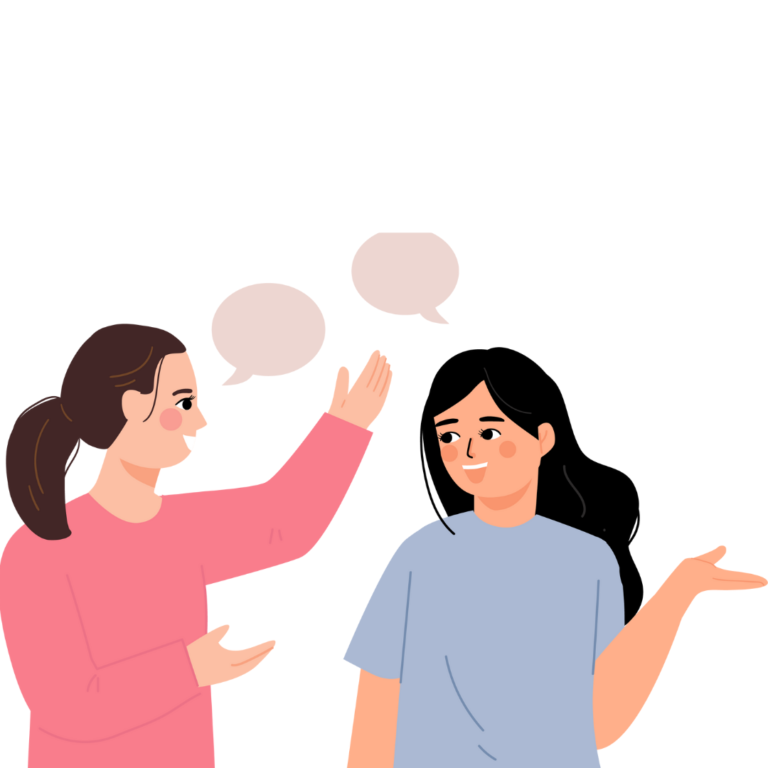Effective communication is an essential skill that can significantly enhance mental well-being, especially for young people navigating social, academic, and personal challenges. Being able to express thoughts and emotions clearly and listen to others empathetically fosters healthier relationships, reduces misunderstandings, and creates a supportive environment. Understanding and implementing strategies for effective communication can lead to improved mental health, better relationships, and greater overall life satisfaction.
The Science of Communication
Communication is more than just exchanging information; it involves understanding the emotions and intentions behind the information. Effective communication is a two-way process that involves sending a clear message and ensuring it is received and understood accurately by the other person. This process requires both verbal and nonverbal skills, including speaking, listening, observing, and empathizing.
Research in psychology and neuroscience has shown that effective communication can improve mental health by reducing stress, enhancing relationships, and promoting emotional well-being. When individuals can articulate their thoughts and feelings, they are less likely to bottle up emotions, which can lead to increased stress and anxiety. Good communication skills also foster stronger relationships, providing a network of support that is crucial for mental health.
The Link Between Communication and Mental Health
Effective communication is closely linked to mental health in several ways. First, clear and honest expression of emotions can prevent misunderstandings and conflicts, which are major sources of stress. When individuals feel heard and understood, they experience a sense of validation and emotional support, which can reduce feelings of loneliness and isolation.
Secondly, effective communication enhances relationships by building trust and mutual respect. Strong relationships provide a buffer against life’s challenges and offer emotional support during difficult times. This support is crucial for maintaining mental health, as it helps individuals cope with stress and adversity.
Additionally, effective communication skills can boost self-esteem and confidence. When individuals can express themselves clearly and assertively, they feel more in control of their interactions and relationships. This sense of empowerment can enhance overall well-being and reduce anxiety.
Strategies for Effective Communication
Developing effective communication skills involves practice, self-awareness, and a willingness to improve. Here are some strategies to help young people communicate more effectively:
- Active listening is a fundamental aspect of effective communication. This involves fully concentrating on what the other person is saying, without interrupting or planning your response while they are speaking. Show that you are listening through nonverbal cues such as nodding, maintaining eye contact, and using affirmative sounds like “mm-hmm” or “I see.” Reflecting back what you’ve heard by paraphrasing or summarizing can also demonstrate that you understand their message.
- Being clear and concise in your communication is crucial. Avoid using vague or ambiguous language that can lead to misunderstandings. Express your thoughts and feelings directly and specifically. For example, instead of saying, “You never listen to me,” you might say, “I feel unheard when you check your phone while I’m talking.”
Nonverbal communication plays a significant role in how messages are conveyed and received. Pay attention to your body language, facial expressions, and tone of voice, as these can all influence how your message is perceived. Ensure that your nonverbal cues match your verbal message to avoid confusion and convey sincerity.
- Using “I” statements can help express your feelings and needs without sounding accusatory or blaming the other person. For example, instead of saying, “You make me angry,” you could say, “I feel angry when you interrupt me.” This approach focuses on your experience and encourages the other person to understand your perspective without feeling defensive.
Being empathetic in your communication fosters understanding and connection. Try to see things from the other person’s perspective and acknowledge their feelings. Phrases like “I understand how you feel” or “I can see how that is frustrating to you, I am sorry” can validate their emotions and show that you care.
Setting boundaries is essential for healthy communication. Clearly communicate your limits and needs to others, and respect their boundaries as well. This mutual respect ensures that interactions remain respectful and prevents resentment from building up.
Practicing assertiveness is important for effective communication. Assertiveness involves expressing your thoughts, feelings, and needs openly and honestly while respecting others. It’s about finding a balance between being too passive and too aggressive. For example, you can say, “I’d like to share my opinion” or “I need some time to think about this.”
Seeking feedback can also improve your communication skills. Ask trusted friends or family members for constructive feedback on how you communicate. Be open to their suggestions and use them to refine your approach.
Seeking Professional Help
If you struggle with communication or find that poor communication is affecting your mental health and relationships, consider seeking support from a mental health professional. Therapy can provide valuable tools and techniques for improving communication skills. Cognitive-behavioral therapy (CBT), for example, can help identify and change unhelpful communication patterns and develop more effective ways of interacting with others.
Conclusion
Effective communication is a vital skill that can significantly enhance mental well-being. By practicing active listening, being clear and concise, using nonverbal cues, expressing empathy, setting boundaries, and being assertive, young people can improve their communication skills and foster healthier relationships. Remember, good communication is a journey that requires practice and self-awareness. With dedication and effort, you can master the art of speaking up and enjoy the mental health benefits that come with it.
Written By: Meenal Ranjan, Mental H2O Youth Resource Writer


